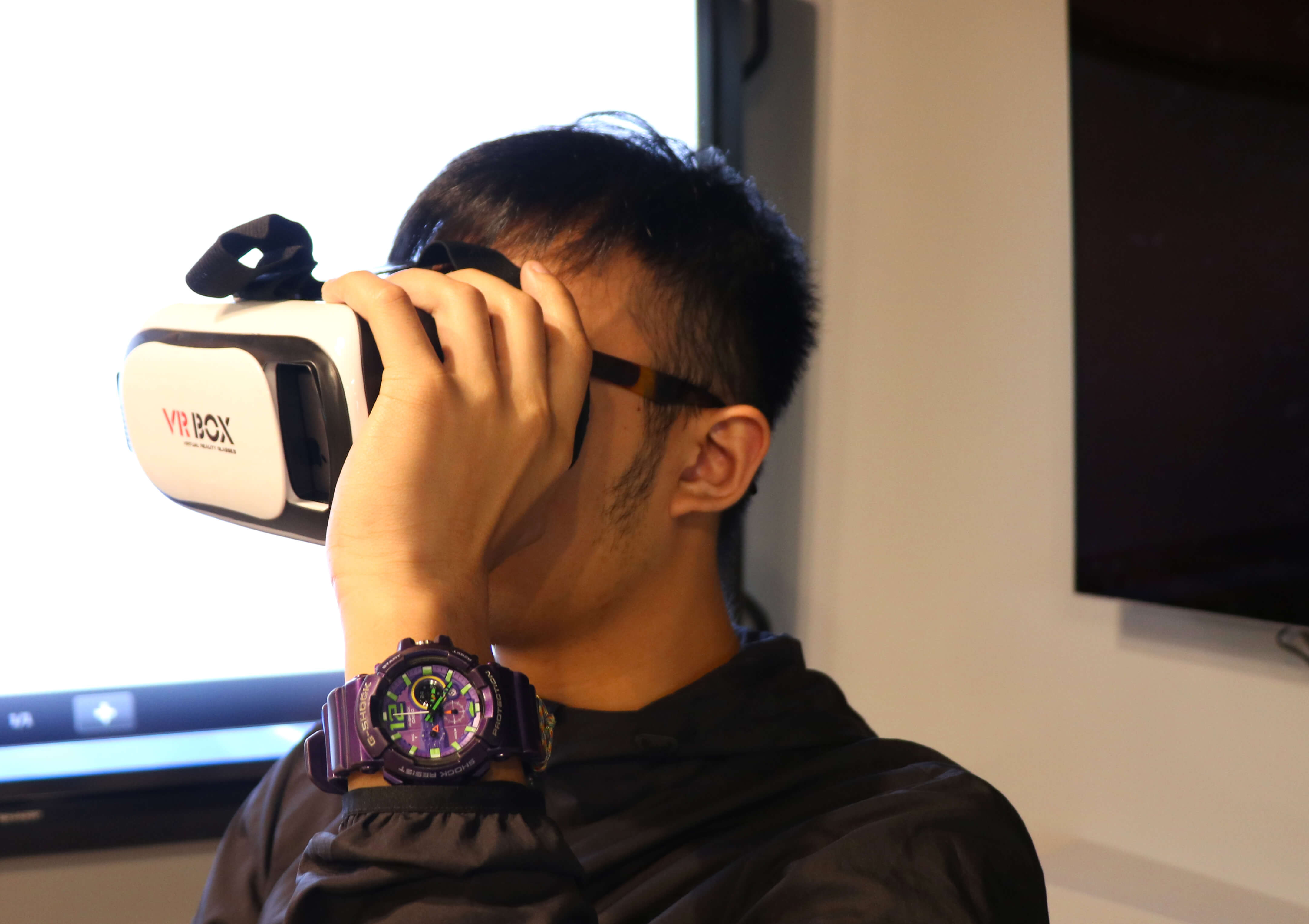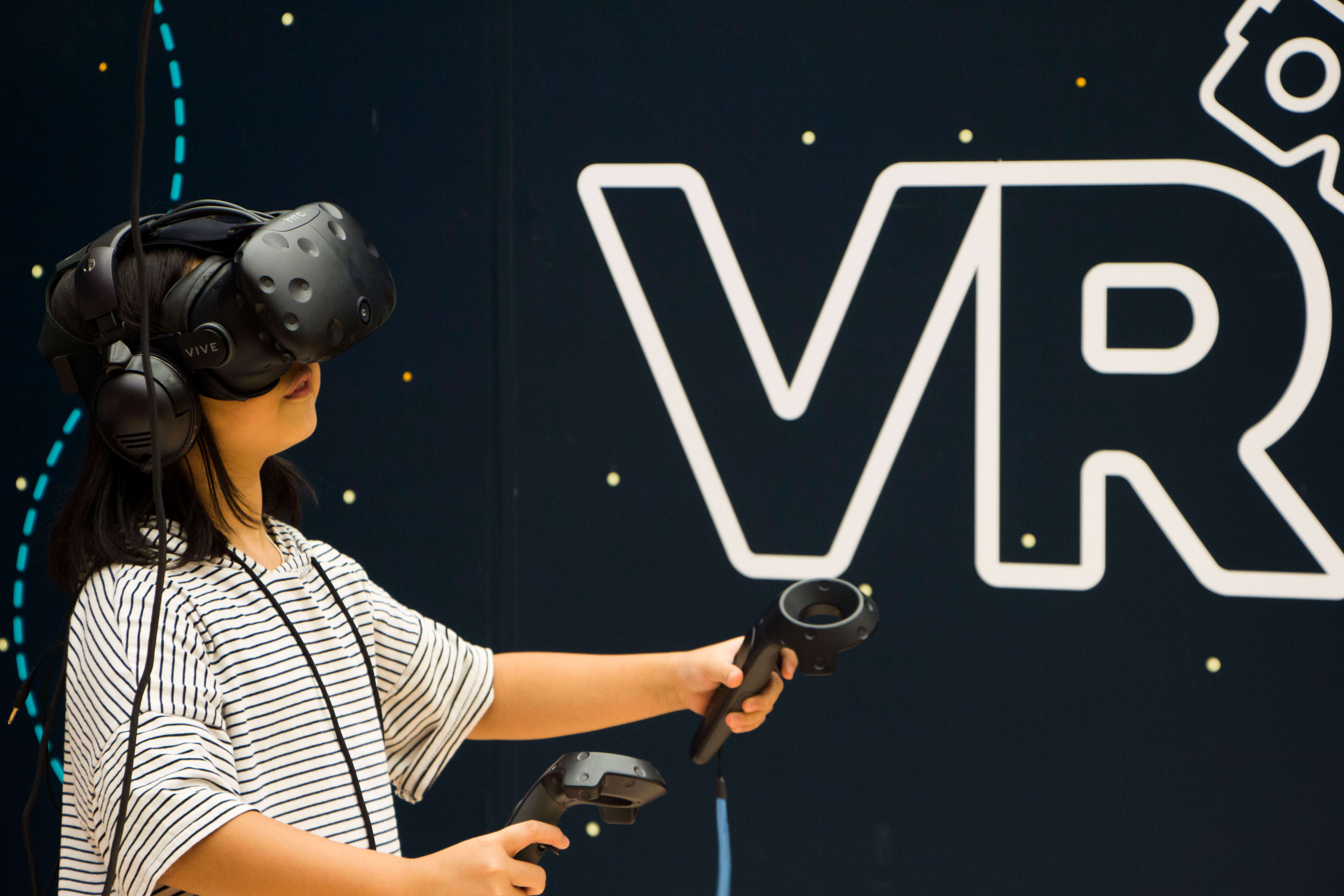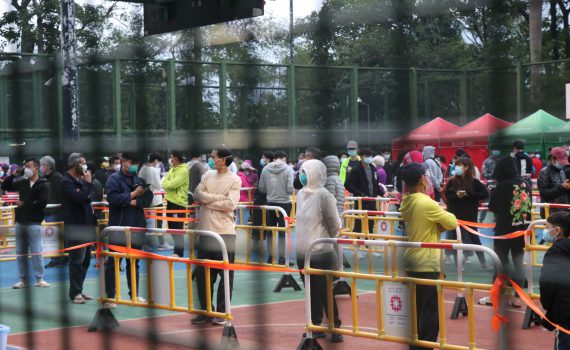20-year-old football fanatic, Tse Pak-hoi Tonny, had anticipated the VR live football match streaming experience for long, which eventually happened in the 2018 Russia World Cup last Summer. It was the first time ever immersive technology kicked into the field of football.
Last Summer, the 2018 World Cup worked with Oculus, a US-based VR technology company, to offer VR live-streaming of matches through Oculus Go, the company's own VR headset goggles. Fox sports live-streamed four World Cup matches for free on Oculus Venue, while BBC Sports VR app broadcasted 33 live matches. The most ambitious of all went to Spanish company, Telemundo Deportes VR, which covered 64 live World Cup matches with paid TV subscriptions.
As an experienced viewer who watches local and international live football matches four to five times each month both on TV and at scene, Mr. Tse explained he felt clueless and confused after having his first trial with a short 360 video of Madrid versus Juventus in the 2017 Champions League Final from Fox Soccer online.
"The very first thing that I immediately knew when the game started was I did not know what to focus on. There were too many things happening around," said Mr. Tse.

Chief operating officer of VR Educate, Ko Ping-yeung, explained the VR experience of a live-streamed sports game is different from what usual VR experience can offer because the nature of sports games viewing and playing video games are different.
"You cannot think of them as the same thing. In VR videos and gameplays, they choreographed animated characters with a fictional plot, which users are guaranteed to experience interactions. However, I guess for live sports, there is probably not much you can do beforehand except making sure you have the equipment you need to make things as real as possible," said Mr. Ko.

Pang Man-tak Frankie, director of Cordex Intelligence Limited, a technological intelligence firm which specializes in market evaluation and production of tailor-made VR strategies for companies, suggested one way that could raise the attractiveness of VR experience of live sports games for users, is to allow them to choose the role they want to be in during the game.
"Users should be allowed to choose where they want to stand, which allows them to watch the match in whichever angle and role as they prefer," said Mr. Pang.
Mr. Pang, based on his years of research in VR technology development, advised conducting thorough and immediate 3D scanning in every aspect, such as, the stadium, the players, the audience and even the referees, during the game, as to ensure even the details, for example, the emotions on the player's face, can appear in the eyes of home audience who are watching the game through VR.
In American researchers, Bob G. Witmer and Michael J. Singer's research paper, Measuring Presence in Virtual Environments : A Presence Questionnaire, released in 1998, the three major pools of inconsistencies in real-time environment’s portrayal through VR, are the involvement, naturalness of interactions and interferences or distractions in the virtual environment.
47% of the reviews on Oculus' official site concluded the VR live match experience with Oculus Go VR goggles was "extremely poor and disappointing." The VR live-streaming was unable to reach other countries, such as France, due to poor connection. Some gave up the experience, knowing it only allowed users with a registered Facebook account to watch the games. They said it was "an intrusive behavior" that people must get "involved with the app" in order to watch it through VR.
Confused as he was, football fanatic Mr. Tse said "it is always better to watch live football matches at the scene because the atmosphere is better."
Lobo Hung-tak Louie, the associate professor from Department of Sports and Physical Education in Hong Kong Baptist University pointed out while it is undeniable that the atmosphere of the match can never be guaranteed in any broadcasting medium, organizers of sports events should focus on how to enhance TV viewers' experience since they form the larger party in the industry.
"Technology is definitely going to favour the football business because when you enhance viewers' experience, you popularize football in society," said Mr. Lobo.
Mr. Ko agreed, saying that "the benefit of using VR is it popularises certain experiences among people."
According to "Application of Informative Technology in sports Stadiums", a research paper released in 2011 International Conference on Physics Science and Technology, when technology makes certain physical activity a public application, it grows more cost-efficient because spending will increase when people pay more to enjoy and experience that kind of sports, while the general cost of it will reduce because mass resources and manpower becomes available.
Mr. Lobo believed the most important step to make VR live sports the "main thing", is to carry out public education and promotion on the integration of live sports and VR.
"All kinds of sports undergo the process called socialization, people who watch the games will understand and learn about the kind of sports. The same thing applies to VR and football, you want people to understand the whole concept, you teach them about it," he said.

Mr. Ko, as part of VR educate, which has been offering VR teaching classrooms to 15 schools across Hong Kong and Macau, said education on VR technology can increase people's motivation to try and experience VR.
Mr. Pang, the director, stressed market value of businesses depend highly on its pool of audience, which apparently, education is the way to achieve greater public acceptance towards the new trend.
"It is very important that the public understand and appreciate the product. It helps sustain its long-term development," said Mr. Pang.
According to the government, the Digital Media Centre, a multimedia creation facility in Cyberport, contains "video and audio studios for 3D modelling and animation" that are meant for the entertainment, game, animation and advertising industry, starting in 2008 in Hong Kong.
In early December last year, the Legislative Council Panel paper on the discussion of strengthening the role of information and communications technology in Hong Kong stated Cyberport will be assisting in promoting VR technologies "to enhance practitioners' knowledge acquisition and exchange," which will help "put together professionals and start-ups" for research and development of VR technology in the near future.
According to KPMG China's estimated generated amount of Hong Kong's major sports events in 2017, the amount generated by spectators' spending on watching sports games took up more than 50% of the total $2.1 billion generated from the city's sports industry.
In the report, it was stated that government spending on sports in 2018 should focus on developing sports through the "digital entertainment node." To sustain Hong Kong as "Asia’s world city," it is crucial for the "public and private sectors," meaning the government and independent businesses, to combine resources, which could add commercial value to the VR experience of popular live sports events.
"We hope to have regular and dedicated input of resources and attention for it. We need society to reckon the trend," said Mr. Ko.
《The Young Reporter》
The Young Reporter (TYR) started as a newspaper in 1969. Today, it is published across multiple media platforms and updated constantly to bring the latest news and analyses to its readers.

Operation Santa Claus: Food experiences for pupils with disabilities

A drive through the newly opened Wan Chai Bypass and Island Eastern Corridor




Comments